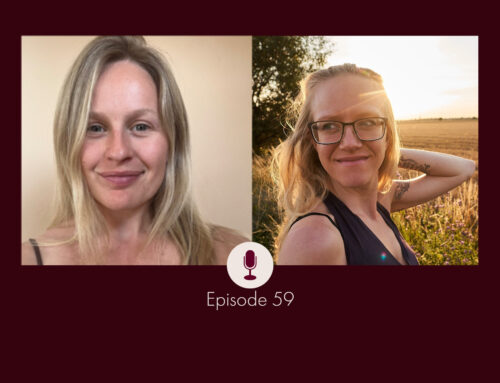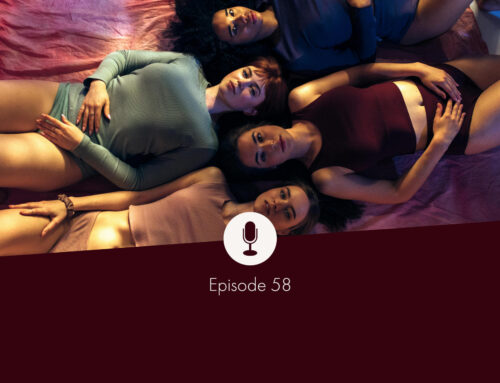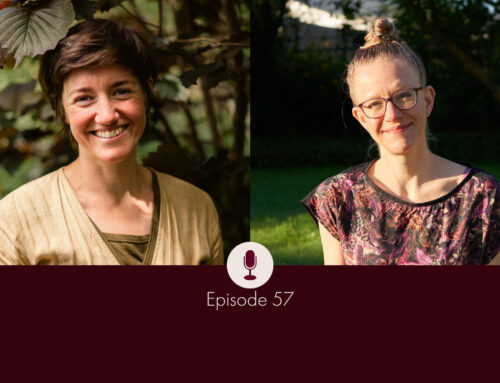[00:00:45] Lisa Jara: Hi, and welcome everyone to another episode of A Fireside Chat about Taboo Topics. Today I’m here with Liz Vivian, and we are going to speak about menarche and how we can support teens through the experience of their first blood, fully knowing that many of us ourselves haven’t had the best experience with our first bleed.
[00:01:13] And I’m really looking forward to that because this is a topic not enough talked about in the society. And to start us off, Liz, would you maybe like to introduce yourself, who you are, what you do in the world, and a cycle check-in, meaning the day of your cycle that you’re on, and one, two, or three words that describe how you are today.
[00:01:39] Liz Vivian: Sure. Hi Lisa. Well, as you said, my name is Liz Vivian, I’m in Seattle, Washington in the US, I have a business called Raising Flora, as a coach, a menstruality mentor, and a mom, I help moms, be prepared, feel confident, and show up with compassion for their tweens’ first periods. And I’m looking forward to talking to you more about all of that.
[00:02:08] Interestingly, my cycle day is 261. I am, I think, well into my menopause journey and I haven’t bled since mid-February. So maybe that’s still going to happen, but I sort of have this sense that I’m on the journey that I’m on. So I will tell you, I have felt for many months this swirly autumn, summer, autumn summer, autumn, summer.
[00:02:40] I desperately miss my spring and I feel today a little anxious in that process, some of that late autumn anxiety that I used to experience and I’m just a little exhausted at holding that tension for so long. And at the same time, there’s this undercurrent of inspiration and creativity and I feel today very clear about what I do in the world and why.
[00:03:13] Lisa Jara: Thank you. Yes, that’s the phase, right? Knowing who you are and what you’re up for and what you’re definitely not up for any longer.
[00:03:22] Liz Vivian: Yes, absolutely, absolutely. So hitting those places a lot this year, I turn 51 in a couple of weeks, so, I love autumn and birthday season. It’s fun for me. What about you, what’s your cycle check-in?
[00:03:45] Lisa Jara: I’m on my day 13, and I feel very inspired. I had lots of ideas today of what I want to share with the world. I feel unusually calm because spring usually makes me anxious a little. And hopeful, which is, I think we have a beautiful combination here of what we bring to the table.
[00:04:11] Liz Vivian: Yeah, I think so. Thank you so much for sharing.
[00:04:15] Lisa Jara: You’re welcome. So tell us, how did you get to do what you do? I mean, preparing moms to prepare their tweens for their first bleed is not the usual job you would think of. I guess you’ve had your own journey getting there.
[00:04:34] Liz Vivian: Yeah, for sure. Well, I would say that my work now comes at the end of a series of aha moments, you know, as it does for many of us in our lives. You know, really starting with my own journey, back to my cycle after stopping birth control pills, after having been on them for many, many, many, many, many, many, many years, and rediscovering what it meant to have a cycle and how that influenced me and how I felt about my cycle.
[00:05:08] There was a work event that I was at, maybe seven or eight years ago, and we were doing an icebreaker activity where one person stands in the middle of the room and makes a statement and everybody else stands as close to that person as they agree with that statement. And some of the things people were sharing were very superficial level, like earrings are my favourite jewellery to wear, et cetera. And then one person stood up and said, “I hate my period.” And everybody else in that room except for me, could not have hugged her tighter, could not have gotten closer to her. And I remember just taking in that moment and thinking, “wow, what if we didn’t hate ourselves? Oh my goodness.” And so that was one of my aha moments in my journey of “oh, someday I’m going to start doing something about this.”
[00:06:15] And then I left that job to explore new professional opportunities and I really wanted to put together life in a new way and be present for my own adolescent daughter. And so in 2019, I was on a path on the Camino in the woods, and I was bleeding at the time and it had been many, many, many, many, many kilometres since I had been in the last town and to the next town and I just was like, “Oh my God, okay, I have to just manage this for myself.” But it really got me thinking. And you know, sometimes we have those moments when we have our period, we’re just connected and in ourselves in a different way. And there I had that next aha moment where I was like, “oh, this is what I’m going to do.” I mean, I was meditative, walking and I had just left a big job and was thinking about what am I going to do next. And that hit me. I stopped and took a picture because I was like, “This is a moment in my life.”
[00:07:17] And then I went on and when I came back from that trip, I started trying to think about “okay, how do I make this, how do I earn my living, what am I going to do for my job?” And I probably googled something and it led me to somebody who was a period coach. And I was like, “what is this?”
[00:07:35] Lisa Jara: That exists? ;-)
[00:07:38] Liz Vivian: Yeah. Yes, Lisa, I was like, “Oh, this job exists. Okay.” And probably through that person’s bio, and I can’t remember who she is because I should thank this person, but it led me to the Red School and then I thought, okay. So I started taking classes and having more of those… I went into those classes thinking “professionally, what do I want to do?” and I really came out the other side of it, feeling like, “Who do I want to be?” And from that, “What am I going to do in the world?” So I had those next series of my Ahas. Meanwhile consulting and parenting and living through the pandemic and just sort of swirling a bit.
[00:08:25] And I think for me, I have an 11-year-old, and so for me, I really wanted to be intentional about how I helped her prepare and how I support her. And in talking with so many other moms, the thing I heard over and over and over again is “I really want my daughter to have a better first period experience than I did, but I don’t even know what that is. Like, what is that?” And I just kept saying to people, oh, we know what that is, here’s some opportunities, here’s some ideas. And it led to all those questions. And I just find that we’re craving knowing what that is and so people have the intention of wanting to give their tween a really healthy, positive start.
[00:09:13] And I decided I could bring the coaching, like “What do YOU think that is?” and the menstruality mentoring sensibility of “Here’s some things to offer.” and then together, we really can figure out what that is and I can support people to bring that to their own family. So that’s my idea of what I’m doing now and kind of how I got there.
[00:09:38] Lisa Jara: Oh, that is so powerful. And I just want to go back to that one thing you said, “It’s not about what do I want to do? It’s first about who do I want to become?” And that is so much deeper and more powerful because when you know who you want to become, then the profession or the career itself doesn’t matter so much. You can be that person in many different ways, and maybe even life will ask you to shift along the way, but who you want to become, that’s the important intention, I think.
[00:10:15] Liz Vivian: Yeah. And I find that cycle awareness, and even as I told you, I’m day 261, but I feel thankful that I know that, and that I have a sense of how that fits into my life as a whole, I guess I would say. And that keeps me connected so that I can do things from the place of truly who I am.
[00:10:43] Lisa Jara: Yeah. And also, yes, many of us have not had a beautiful first bleed experience, mostly neutral at best, shameful at worst or in many cases AND healing is still possible. Because I sometimes work with women and support them through healing this experience and healing can happen even when you don’t bleed at all anymore, which is so powerful. Because our bodies, our whole systems, they can heal any time. Our mind doesn’t know whether something’s happening in the moment or if that’s just the thought, it always thinks it’s happening in the moment. So when you go back to that moment and kind of rearrange that moment, your system will remember it differently. And how different would our world look, if girls, teens, tweens experience their first period as a special moment in time, as the special moment that it is? Because it is the first of the blood rites we have, as people who bleed. So your daughter, you said is 11, she has not yet had her first bleed?
[00:12:05] Liz Vivian: Nope, she has.
[00:12:07] Lisa Jara: Oh, she has? Ooh. So how did you prepare and how did you, probably, involve her in the process, because I guess she had a say in what she wanted to have happen?
[00:12:18] Liz Vivian: Yes, for sure. So I would say that in some ways I was a little bit caught off guard. I thought I would have more time, because there are earlier puberty markers to know, okay, this is coming a year and a half or two years after the beginning of puberty. And so I had a sense and I had sort of gauged, “Okay, this is about when.” and then all of a sudden it was there. And so, partly, we had had some early conversations and, you know, like many of us, when we’re having an intense conversation, sometimes the side-by-side conversation is good. So she and I were on a walk, we were holding our cups of tea and we were forest on one side and water on the other side, just in a really beautiful place. And I just said, “Hey, how are you feeling, knowing your first period is coming soon?” And so we just talked about that and I was open to whatever she had to say.
[00:13:18] I think one of the really important things is knowing that your child’s experience might be really different than your own. And so, this is a moment where parenting is moving into a little bit more of coaching, like “What do you think about this? What do you feel about this? Oh, do you want to hear my story?” and I had, as part of my practice of resting when I bleed, had a blanket that I only ever used when I was bleeding. And she was like, “I want a blanket, too.” And I was like, “Great, let’s pick out a cool blanket that you want to have.” So there was that. And then I said, “How do you want to mark the moment, you know, what do you want?” And she’s like, “I want a cake.” And I said, “Okay, great.” So I knew the blanket, the cake, and then I also just knew in my head, regardless of what she said, that we needed to have supplies on hand.
[00:14:20] One of the things that I find is really important is, in general, in our culture, we’ve gotten more open to talking about how we manage the days we bleed, we can see blood coloured in pad commercials.
[00:14:36] Lisa Jara: Yeah, finally!
[00:14:38] Liz Vivian: Finally, right? But what was really important to me was not just helping her manage the days she bleeds, but like, how do you want to mark this moment and what does it mean overall in your life? So we talked about that and then when the time came, I ordered a cake and she wanted it to say “happy flow” on the top and so it did. It was really beautiful, chocolate cake.
[00:15:01] Lisa Jara: So fun.
[00:15:04] Liz Vivian: Yeah, and I might have had other ideas as well about, you know, something else I wanted to do, but we did what she wanted to do and what was important to her.
[00:15:17] Lisa Jara: And I suppose, you being so cycle aware yourself, she has long known what it means to bleed. Did you, kind of, intentionally prepare her as being the example for a different kind of being with your menstrual cycle?
[00:15:34] Liz Vivian: I think I tried, you know, early on I just let her touch everything. I mean, some of that happens naturally if you’re open with kids, especially when they’re potty training. When they’re young, they just are in the bathroom and they want to see everything and be around you. And they’re so curious. And so she was a kid who was always unwrapping tampons or you know, figuring things out, and so I started by just being really open in that sense when she was much younger.
[00:16:09] And then I did slip in pieces about a seasonal approach to a cycle and understanding where I was in my cycle and I’ve shared with her some of that. And I gave her kind of a cycle tracking tool, like a journal with prompts that she could track. And that usually sticks for the first few days when she’s like, “Here’s what’s happening in my life.” and then it hasn’t really held, so I’m still figuring out what else to offer her, but I did my best to be just generally open, like normal. Normal as in “This is a normal part of life and here’s what’s really beautiful about being able to create life. And here’s where you came from and this is why this is so important. And here’s the opportunities you have, to say yes at some parts of your cycle and no at others.”
[00:17:14] So now what I’m really trying to work on with her is the “it’s okay to be different every day in your cycle”. And I think as we’ve talked about a little bit, that’s not always allowed and I want my girl to go through life having that grace with herself and compassion for everybody else. And I feel like that’s a place where I want to keep setting an example for her, that self-compassion. It’s not something that 11- and 12-year-old girls give themselves a lot of, so that feels particularly important.
[00:17:55] Lisa Jara: Yeah, it’s massive. And I mean, children don’t listen to what you say, they listen to or rather they learn from what you do. So by being this example and taking care of yourself and having the blanket that you only use on that special occasion, and even talking about it in a positive way can do so much. Because a lot of what happens is, and correct me if you’ve had other experiences, but you get your first bleed and then you’re like, “Oh, I have to hide the tampons or pads when I go to the toilet. And I must pay attention that nothing comes through my underwear.” And all of that. So there’s always, other people, other children would make fun of you if, I don’t know, a tampon fell out of your pocket or something. Did you have similar experiences?
[00:18:46] Liz Vivian: Yeah, absolutely, absolutely. And I think, you know, both my own experiences being young and having my dad write me a note to get out of swimming, which was what I did for gym class in part, in middle school, or what we call middle school here, because I couldn’t figure out tampons and I couldn’t go swimming and just having to sit there and pretend to have a cold was ridiculous.
[00:19:15] But I remember, I still remember those moments and I see, you know, my daughter called me on something recently. I had whispered to her, I was in the hallway, “Oh, do you have pads?” and she was like, “I do. Why are you whispering?” And I was like, “Well, cause dad’s right over there.” And she’s like, “It’s just dad.” Yeah, so those things are, you know, they’re just really in us, Lisa. And so I appreciate that. And I have a husband who is very open and wants to be the good partner, in the work that I do and to me, and a good father to her around this. And so, she definitely caught me trying to be all “let’s be secretive about this”. And that’s what we’re trying to get away from.
[00:20:15] But I think, you know, not to get wonky about it, but there’s good research that shows that when you drop a tampon and when people witness that, they think less of you in those moments. It just is so in us. And so some of those responses that we have, they come from a very ingrained culture where this is still such a taboo. And there’s just a lot of work to do, I think, especially at school. Especially at school where there’s just still, you know, developmentally, they’re so unsure of so many things. It’s hard to feel confident about a changing body in general. And you know, to be the kid who’s like, “Well, I’m going to be confident about my period.” that’s a hard place to stand when you’re young, I think.
[00:21:14] Lisa Jara: Yeah, absolutely. I mean, think of all the hormonal cocktail that’s going on inside of you and then you have to figure out who you are, and of course that is overwhelming and you feel insecure. It’s a normal experience and we, when we are aware of it, we can support them move through it with more, as you say, self-compassion. “Hey, it’s okay to not have the same amount of energy or be in the same mood every day. It’s okay to feel insecure.” When I was raised by my mother, she was like, “Yeah, you have to fake confidence.” That didn’t really do me any good because I still didn’t feel confident, I just felt even more insecure that someone would catch me out on my not being confident.
[00:22:12] But you don’t work with the young women yourself, you work with the mothers, if I got that right. So how do you support moms or parents in general to support their own children?
[00:22:30] Liz Vivian: Yeah, well, so I think that moms in particular, I mean, I think we all have a role as friends and aunts and coaches and teachers and you know, we all have a role in changing our culture and in supporting tweens and teens to have a healthy experience. But I think that moms have a very, particular and powerful position to be more open, less shame-y, to bring meaning to a first period experience. And so, and as a mom myself, it was a good starting place for me in the work that I want to do in the world. And so, I’m starting there and I think there’s a great opportunity around mindset to remind people, “You know, your tween’s experience might be different than yours. You might have had a wonderful, amazing, or horrible, painful experience or someplace in between.” And as you said, maybe it was neutral. “Whatever your experience was, you’re going to have the tween that you have and you know, her experience is going to be what it is.” And so just preparing for that and figuring out how to be intentional about what messages you do want to communicate.
[00:23:46] Because not talking about it, not doing something communicates quite a bit, you know, particularly around our cycle and menstruation. And really to help moms feel confident in that conversation. I think there’s so much about puberty, and it can just take us back to those moments ourselves that we really struggled with, how to talk about our bodies in general, how to talk about sex, how to talk about menstruation. There’s so much and it can feel overwhelming, it can feel hard to find your confidence in how you want to do that. So what I like to do is work with moms in preparing themselves and then having those conversations with their tweens, making sure that they have a gift on hand, that they have supplies on hand, that they have talked with their tween about how they want to mark that moment well in advance.
[00:24:49] So that, like I thought I would have months and months and then all of a sudden there it was, I at least knew what our plan was, because we had had that conversation. And not that that can’t happen in the moment, but it just gives you an opportunity for how you want to show up in that moment.
[00:25:08] And then I like to talk a lot about how we support tweens through their first periods, because there is the one special first period moment and then they really need so much help and support through their cycles. And you know, some of it is as simple as like, I remind my child to brush her teeth. I do a lot of reminding, “Where are you in your cycle? Do you have pads in your backpack? Are you ready, like, are you just managing yourself?” Because with all those hormones, self-management has gone out the window in general, as is true for lots of kids. And so there’s an opportunity really in those first 13 cycles, to again, keep showing up every time in a positive, healthy, open way so that that really gets cemented. And because they’re going to have a million questions that might not come up the first time, it might come up the fourth time, the colour of their blood is going to be different, the way their body feels is going to be different, the way they start to notice their cycle journey through a month is going to be different.
[00:26:26] And so I find that working with moms around their own mindset, around the getting ready to mark the first period moment and then getting ready to coach for the first 13 months is really the important things to address. So that’s the kind of thing that I like to do. And I think, you know, as I said, lots of other people in a tween’s life have a role to play, but moms can really claim a special spot and it can be really beautiful to have that mother daughter experience or mother tween experience and to share that and to see it as a way that keeps you closely connected to your tween when they want so much to be independent. It’s a way to facilitate that continued connection while you’re launching them, you know, and I think this sets the stage for that in a really powerful way.
[00:27:32] Lisa Jara: That’s a really great reminder that you’re giving. In that stage it’s normal that they individuate, it’s normal that they become their own person, and still there are these moments of connection in between, and that’s a beautiful process.
[00:27:49] And also thanks for reminding us that it is a process. I mean, yes, the first time is a special occasion, but it’s not over there, it’s just starting, and you’re laying the foundation for this whole process that is going to be with them all the way until menopause. It’s this death and rebirth experience every month. And also, really being open. Do you find that most of the moms that come to you are going through this whole inner process first and have to deal with like lots of internal baggage even?
[00:28:41] Liz Vivian: I think sometimes, yes. And sometimes it takes some time for people to share that. I sort of see that first in people, feeling a little anxious and a little like, “Well, I’ve got this book that I was given. What do you think of this book?” I get a lot of questions. “What do you think of this resource? What do you think of that resource?” And so I always say, “Well, what do YOU think of that resource? Like, have you reread that book that you read when you were a girl? Do you think it stands up? Do you like that? Is that the message you want to convey?” And then usually people are like, “Oh my gosh.” And their whole first period experience comes out. And so I find that people lead with those very concrete questions, and then they can pretty quickly get back around to what’s really under that, in their feelings about it.
[00:29:48] And oftentimes, moms who had, like their experience was really beautiful, that they would put it that way, they’re still looking for some reminders. “What are the modern resources?” So it has really varied in a very interesting way, or I’ll just say “That sounds like something to talk about with your therapist.” I’m not a therapist, I don’t do that kind of work with people at all, and I’m very clear on like that boundary. And so, I also want to point people towards you, towards their therapist, towards somebody else who does that kind of work with them, if people really want to heal.
[00:30:45] Lisa Jara: Yeah. And, it’s again, a really beautiful reminder that, what you describe shows so clearly that they have the answers inside of them. They know what they think about that particular book or whatever it is they bring to you. But in the society where we are so trained to first refer to the expert, to some authority out there, it’s just our first, I don’t even want to say instinct, but it happens so naturally for us to first ask somebody else instead of listening within where we can find the answers. I so love how you make it clear to them that they already know, and you just help them figure that out, what they know.
[00:31:32] Liz Vivian: Yeah. Sometimes when people are asking me the question, I’m like, “Oh, you’re a little unsure of that. That’s great, you know, explore that.” That’s important to pay attention to all those voices. You know, I say a lot like “you know yourself and your tween best. You know your own first period. You know your own cycle journey. You know what this means for you and you know your tween and what is going to be important in their experience. I can’t say to you, “Here’s the ideal. This is what a “beautiful” first period experience looks like.” I can point you to what some other people have done. We can talk about it. And I think people know they just need that reminder, that they actually do know their child that well. And you know, you can have a sense. Does your child want a ceremony? Do they want a party? Do they want a blanket? Do they want a private moment by themselves? What is that going to be?
[00:32:49] Lisa Jara: And if you don’t know, you can ask.
[00:32:52] Liz Vivian: Yeah, exactly, exactly. And maybe that’s going to prompt them to, you know, to do that. But we don’t often have those conversations with our tweens. People don’t often say that to them, so.
[00:33:10] Lisa Jara: Yeah, but that’s what I love about the way you work, is you, by redirecting the questions to themselves and them finding the answer within themselves makes them ask their tweens about their experience and what they would like to have happen, which again, means that they will later on refer to themselves as their own authority, too. And so it’s this beautiful ripple effect of your work. I love that.
[00:33:38] Liz Vivian: Yes, it’s huge because really like we want our kids to be connected to their bodies and we know that because we know this intuitively, we see this. And we also know from some good data that has been collected over many years that keeping them connected to a good, positive, healthy period, first period experience, can connect girls to their bodies. They show up as agents in decision making about sex in a whole different way. They make choices about how they take care of themselves. It does so much around keeping our body image positive and there’s just so many benefits in so many ways to why this is important.
[00:34:36] And I find, too, you know, we come at this from different perspectives. There are some moms who see this as, you know, really it’s all about health and women’s health and reproductive health, and I want my child to understand her period as a vital sign in her body and so that she can talk with her doctor the same way she would about her knee or her nose. That’s important to people. And for some people this is a deeply spiritual experience for themselves and they want to really convey the spiritual component to their child. And for other people, you know, it’s like a lot of girl power, like “I just want her to feel good” kind of thing. And so there are lots of different reasons why this is important and all of them are valid and everybody can find their way to one or two, or three or five of those reasons as a foundation for finding your confidence to have a conversation that you might have shied away from for a very long time. And I find that fascinating part of the work, of what’s important and why, and then how people make choices based on that. And it’s all really good.
[00:36:08] Lisa Jara: I’ve just today recorded a mini series of how our cycle works us on all levels every month, like on a physical level, on an emotional level, on a mental level, and on a spiritual level, and the importance of each phase, and I believe this ties into what we shared earlier, into this sense of self-worth and confidence about themselves. That’s what they learn in the midst of all the hormones and puberty and everything, they have this steadiness of their cycle, this cyclical rhythm, this heartbeat that is a kind of anchor. I sometimes say it’s like having control, but not the graspy kind of control, but more this confidence and the steadiness of their own rhythm. And I think that’s what we need, to feel safe where we are right now with ourselves.
[00:37:12] Okay, so in case there is a mother or a parent listening who would love to talk to you, how can they connect? What’s your favourite way of connection? How can they work with you?
[00:37:25] Liz Vivian: Sure. So I’m at raisingflora.com and so you can find a lot of inspiration and resources there and through raisingflora.com people can schedule just to have a cup of tea and, you know, talk and see if they might want to work with me. People can also book through raisingflora.com and so that’s really the best way to get in touch, to ask questions, to explore working together, or to book a consultation or a package.
[00:37:58] Lisa Jara: Beautiful. I will definitely make sure to link to all of that below this. Thank you. Do you have, as some closing words, something that needs to be shared right now or your message to the world, to the people out there? Is there anything you would like to share?
[00:38:18] Liz Vivian: I guess what I want to share is that we absolutely can give our tweens healthy, positive experiences and we can partner with them to create what’s going to be most meaningful for them. And I want to encourage people to see the possibility in that and to have compassion and confidence in leading through this process for their tween, because it is possible and it’s also important.
[00:38:59] Lisa Jara: It is. So that in the end, the women in that room that were your aha-moment will huddle together because the first one said, I love my period.
[00:39:12] Liz Vivian: Yes, that’s exactly right, yes. Oh, yes. That’s the vision, Lisa. Yes.
[00:39:20] Lisa Jara: Thanks Liz, for being on that journey with me, with us. It was wonderful to have had you here for this chat. I think we would have many more topics to explore together, so who knows, maybe we’ll see each other again.
[00:39:39] Liz Vivian: Yeah, that sounds great. I would love it. Thank you. Thank you so much for all the good work that you’re doing and for just a delightful conversation today. Like, yeah, really joyful, on such a taboo.
[00:39:55] Lisa Jara: Thank you and have a beautiful day everyone. Bye.

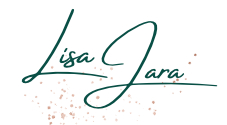


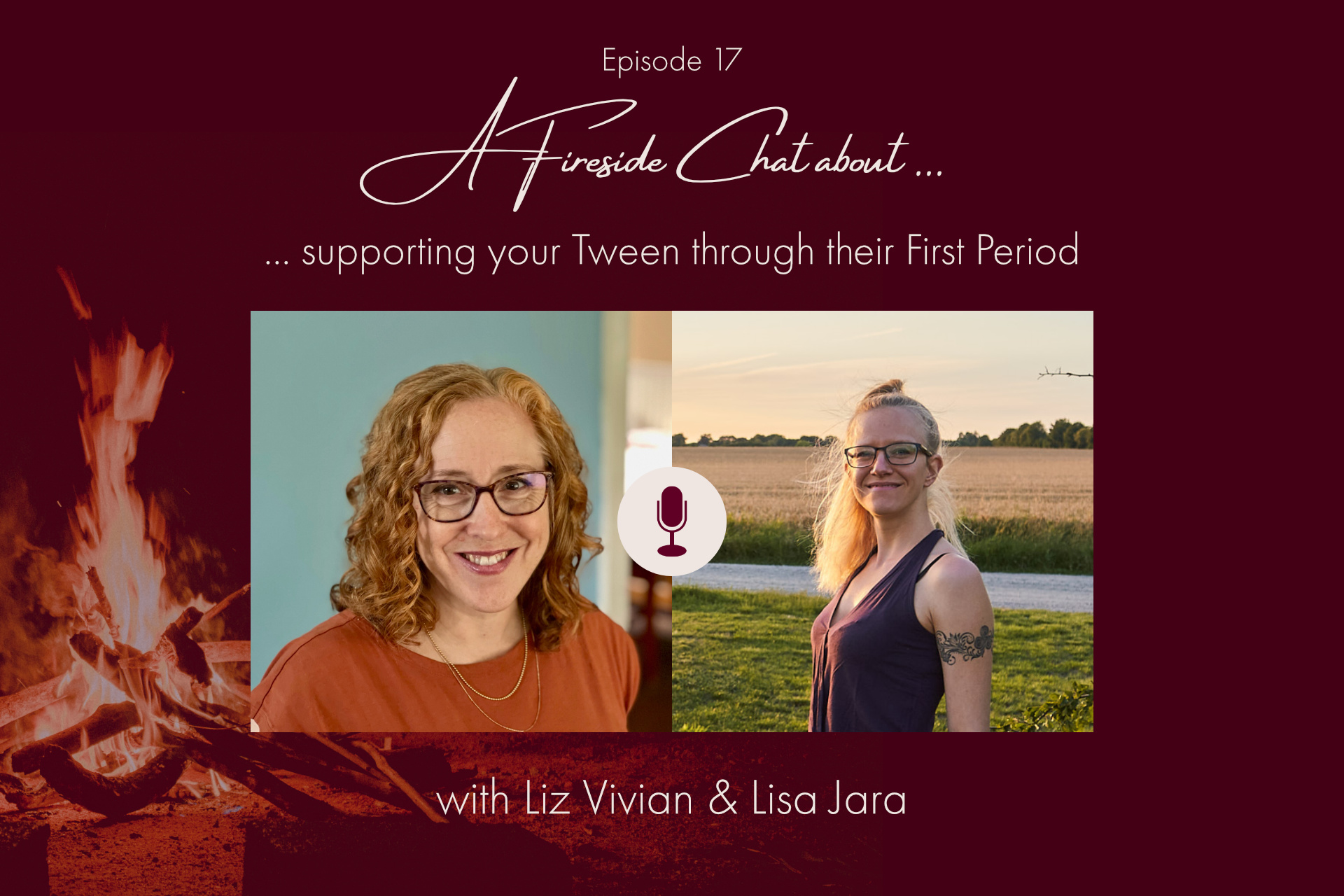
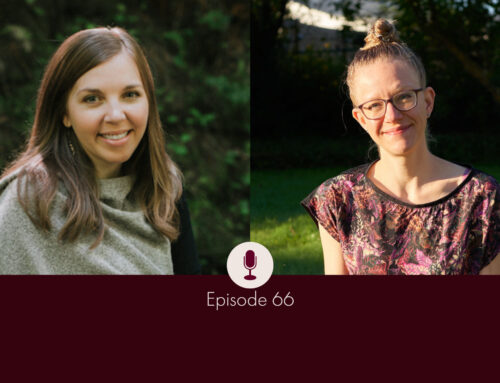
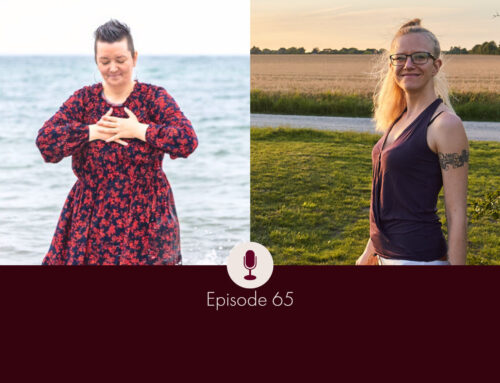
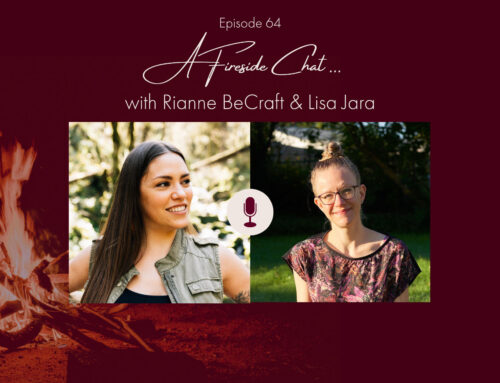
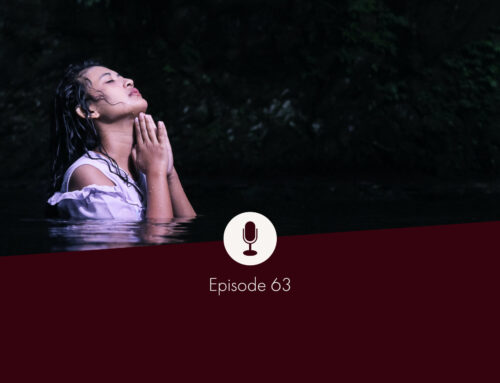
![Soothing the Inner Child to reduce Emotional Eating [Live Coaching]](https://lisa-jara.com/wp-content/uploads/2024/07/Womb-Whispers_Episode-60-Live-Coaching-Soothing-the-Inner-Child-to-reduce-Emotional-Eating_Beitrag-500x383.jpg)
